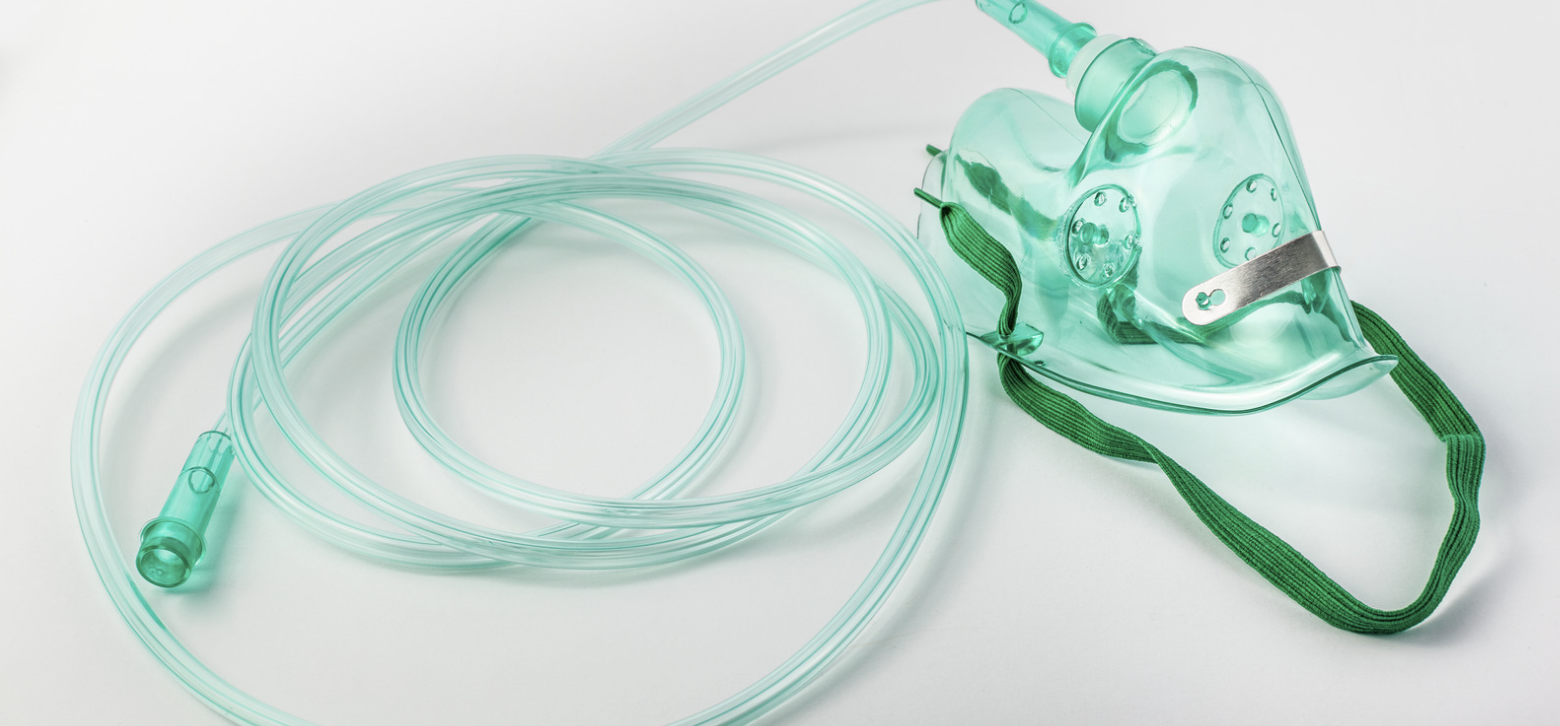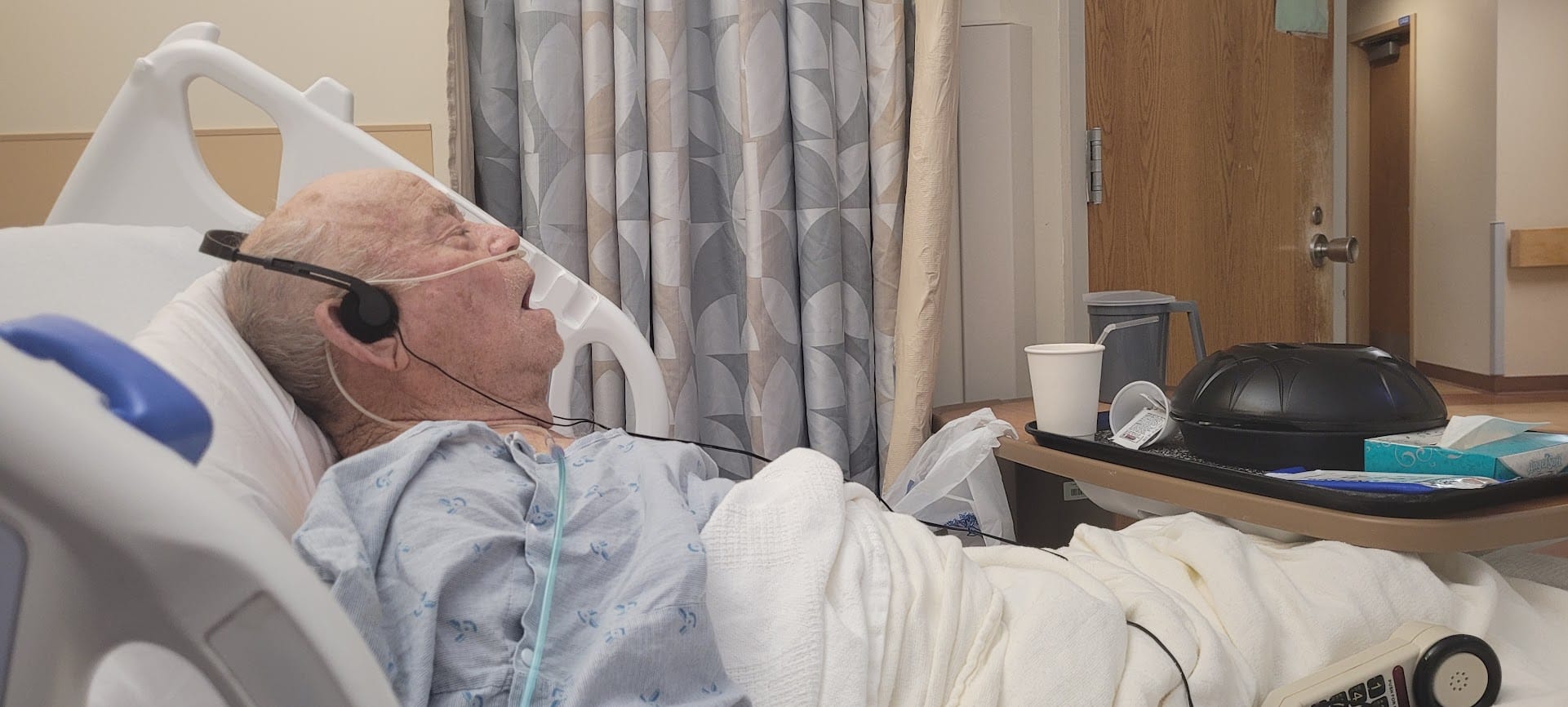The Things We Take For Granted: Oxygen
When my 91-year-old father came home from the hospital on supplemental oxygen, I learned how fragile the simple act of breathing can be — and how easily we forget the quiet miracles that keep us alive.

Here’s something I never thought about until this week: the air we breathe is only 21% percent oxygen.
Why is this relevant?
If you read my last article, you know my father was admitted to the hospital two weeks ago. I found him sitting on his couch at five in the morning, gasping for breath. I put the pulse oximeter – that little clip they put on your fingertip at the doctor's office to measure your oxygen – on his finger and it flashed 67.
Typical oxygen saturation for a healthy adult is 95-100%. For someone my dad's age – 91 years old – anything between 90-94% is satisfactory.
When the paramedics arrived, they told me his condition was "life-threatening." They strapped an oxygen mask on him and whisked him away.
When I asked ChatGPT, at a later date, about his oxygen level and what would have happened if I hadn't responded when I did, this is what it told me:

When I got to the hospital, the doctors gave me the details.
My father's lungs were filled with fluid. My father has congestive heart failure. The fluid buildup was making it difficult for his lungs to expand and exhale fully. His lungs were filling with carbon dioxide.
His heart was struggling to keep up giving him the strength to simply breathe.
I was later told his heart function is at 50%. That sounds bad on the face of it, but for someone his age, typical ejection fraction (what I referred to as "heart function") is 55-70% is considered "normal."

It was touch-and-go for a few days despite neighbors and family always texting or asking me, "When will he be coming home?"
I felt like screaming to them, "He might not be coming home! You don't understand how serious this is!"
Nurses were asking me about terms like "advanced directives," "living wills," "health care power of attorney." They asked me if "intubation" were necessary, did they have permission to do it?
I didn't understand that intubation, basically, meant life support. Every time I asked my dad about the advanced directives or living wills, he'd shrug his shoulders and say he thinks he signed those things at one of his primary care physician's visits, but he didn't know. The PCP should know.
After a couple of days on oxygen and after being given diuretics to help him drain the fluid out of his body, his condition wasn't considered life-threatening anymore.
But the fact remained, he still had a lot of fluid in his lungs and he was struggling to stay oxygenated even on six liters of supplemental oxygen – the maximum for standard nasal oxygen.
As his condition got better and they were, comfortably, able to lower his oxygen level down to two liters, I asked the doctors if he was going to need supplemental oxygen if and when he was discharged to go home.
The doctors asked me if he was on supplemental oxygen before. I replied, "No."
I told them that I would feel more comfortable, however, if he were.
The doctors replied, "Well, if he wasn't on supplemental oxygen at home before he came here, our goal is to get him back to the baseline he was at before he was admitted."
I thought to myself, "Well, the baseline before he got admitted was 67. I don't want him to return to that!"
After twelve days in the hospital, he was discharged. My older brother was at the hospital to bring him home.
I got my wish and the hospital doctors did order supplemental oxygen for him. A delivery driver dropped off six small oxygen tanks that he could use for when he needed to go outside. Each tank fit into a shoulder harness that didn't appear anymore uncomfortable than walking around with a backpack.
Each one of those small tanks, however, held only an hour worth of oxygen. That wasn't easy to explain to my dad who was used to spending all day in the yard and garden.
The machine they delivered for him to use oxygen inside was installed in his TV room on the first floor. The machine was about the size of a typical paper shredder. It could be run all the time.
All it does is take the air in the room and filters out most of the 79% that is not oxygen, and feeds the patient just the oxygen part. It wasn't what I expected. I don't know what I was expecting. A machine that makes just oxygen?
I was also, pleasantly, surprised to see how long the tubing was. We have a pretty large house, but the installer told me the tube would extend the length of the house in either direction.
That was comforting, yet scary to me. It was comforting that my dad would have the mobility to still be able to go anywhere in the house. I was worried, however, that he would get entangled or trip on the tubing. Or that it might snag on something.
When my brother dropped off my dad, I explained to my dad the setup. I told him that he needed to be connected to the oxygen 24/7. It was not to be used on an "as needed" basis.
We were going to have to transition him to living full-time on the first floor. He was used to spending most of his time watching TV, bathing, and eating in the furnished basement.
He didn't like that idea very much. He didn't like any of it, actually.
He didn't want to be on supplemental oxygen at all. He always had faith, or the belief, that doctors had a cure for everything. He didn't understand why the doctors couldn't fix this. He refused to understand that, in most cases, hearts aren't designed to last more than 100 years.
For the first two days he was home, I didn't sleep much, if at all.
I live upstairs from him on the second floor, but those first two nights, I slept on the first floor in the same bedroom I had when I was a kid. He had converted the room into a sort of memorial for my mother who had died four years earlier. Photos of her were everywhere.
That wasn't easy for me, but it was either that room or the couch.
I was well aware that my life was now changed, yet again. I was now a full-time caregiver. It wasn't a job that I had applied for, but I had to accept it.
I am all my father has, and even though he won't admit it, he knows it. And, deep down inside that weakening heart of his, I think he appreciates it. Although I know he would appreciate it more if I dusted the house and clipped his toenails – but that is a story for another day.
I now needed to look after my dad all the time. I was going to have to do groceries for him. I was going to have to maybe cook for him and do his laundry. I was going to have to do his bills. I was going to have to check on him every couple of hours, instead of the once per day or two that I used to do.
Those first two days he was home, my phone was constantly ringing:
- His primary care office called to set up follow-up visits and check on him.
- Home care wanted to schedule an in-home assessment.
- Physical therapy called.
- Occupational therapy called.
- The oxygen company needed billing information.
- I had to call the cardiologist to arrange follow-up appointments.
- His primary care also wanted me to schedule a sleep study for possible sleep apnea.
- And my therapist — God bless her — was checking to see if I was finding time for myself (yeah, right!).
After the onslaught of those first few days of dealing with people (not my forte), I could breathe a little bit. My dad seemed comfortable with the oxygen. He looked better, even though he wouldn't admit it.
But he always finds something to complain about. One day he'd complain that his oxygen level would be too low (90), then these last few days he has been complaining that the machine must not be working right because his oxygen is too high (97). That's right – he would complain that he was feeling too good.
Once things settled, I felt comfortable slipping away for a few minutes every day just to go get a coffee and sit at the park for a little while.
No longer would I be able to play basketball like I had been all summer for 3-4 hours every day. I wouldn't be able to just sit at the park and listen to my sports podcasts for an hour or two anymore. I wouldn't be able to sit at my mother's grave for hours like I did in the beginning. I definitely won't be able to go away for a weekend to New Hampshire or Vermont to see the foliage like I do every year.
But I can get away for 30-45 minutes at a time. I now understood why they call it "respite." I need it. I need time to myself.
The world can survive without me for 30-45 minutes.
I need time to breathe for myself.
🔗 Share This Article
If this story made you stop and think, please share it with someone who might need that same pause today.
Share on:
